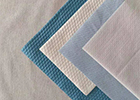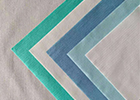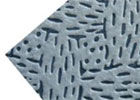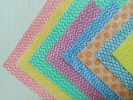Key Considerations When Purchasing Polyester Non-Woven Fabric
Introduction
When it comes to choosing the right fabric for your needs, it is important to consider various factors. Polyester non-woven fabric is a popular option that offers numerous advantages in different applications. In this article, we will explore what polyester non-woven fabric is, its advantages, and key considerations to keep in mind when purchasing this type of fabric.
What is Polyester Non-Woven Fabric?
Polyester non-woven fabric is a synthetic material made from polyester fibers that are bonded together using heat, chemicals, or mechanical processes. Unlike woven fabrics, which consist of interlocking yarns, non-woven fabrics are made by entangling fibers together, resulting in a cohesive sheet of material. This process gives polyester non-woven fabric unique properties that make it suitable for various uses.
Advantages of Polyester Non-Woven Fabric
1. Durability: Polyester non-woven fabric is known for its exceptional strength and durability. It can withstand wear and tear, making it ideal for heavy-duty applications.
2. Moisture Resistance: Polyester fibers have natural water-repellent properties, making non-woven fabric resistant to water absorption. This feature makes it suitable for products that need to stay dry or repel moisture.
3. Breathability: The structure of polyester non-woven fabric allows air to pass through, promoting breathability. This makes it suitable for products that require good airflow, such as medical masks or filtration systems.
4. Ease of Cleaning: Polyester non-woven fabric is relatively easy to clean and maintain. It can withstand regular washing without losing its shape or texture, making it a practical choice for reusable products.
5. Versatility: Polyester non-woven fabric can be manufactured in various thicknesses and densities, allowing for customization based on specific application requirements. It is used in a wide range of industries, including automotive, construction, healthcare, and more.
When purchasing polyester non-woven fabric, there are a few key considerations to keep in mind. These include the intended use of the fabric, the desired thickness and density, the availability of different colors or prints, and the cost-effectiveness of the material. Additionally, it is essential to ensure that the fabric meets any regulatory standards or certifications required for your specific application.
In conclusion, polyester non-woven fabric offers several advantages and is a versatile option for various applications. By understanding its characteristics and considering the key factors when purchasing, you can make an informed decision and select the right polyester non-woven
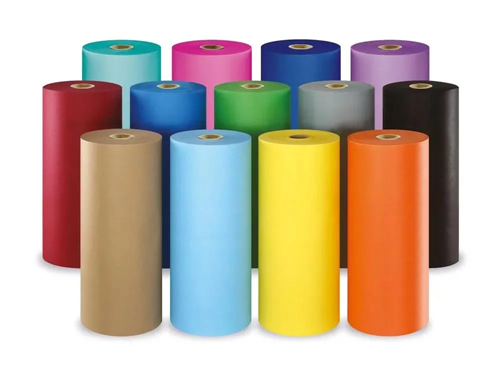
Durability is one of the key factors to consider when purchasing polyester non-woven fabric. The fabric's ability to withstand wear and tear is crucial, especially in applications that involve heavy-duty use. Here, we will explore the factors that affect the durability of polyester non-woven fabric and highlight its wear and tear resistance.
Factors affecting the durability of Polyester Non-Woven Fabric
1. Fiber Quality: The quality of the polyester fibers used in the fabric greatly impacts its durability. High-quality fibers are more resistant to breakage and can withstand repeated use without fraying or tearing.
2. Production Techniques: The method used to bond the polyester fibers together also plays a role in the fabric's durability. Heat, chemicals, or mechanical processes can be used to create a strong bond between the fibers, ensuring that the fabric retains its integrity over time.
3. Weight and Thickness: Thicker and heavier polyester non-woven fabric tends to be more durable as it offers better resistance against abrasion and impact. When purchasing polyester non-woven fabric, consider the specific application and choose a weight and thickness that can withstand the anticipated wear and tear.
4. Coatings and Finishes: Some polyester non-woven fabrics may have additional coatings or finishes that enhance their durability. These treatments can provide added protection against moisture, UV rays, or chemicals, making the fabric more resistant to damage.
Wear and Tear Resistance
Polyester non-woven fabric is known for its exceptional wear and tear resistance. Its strong fibers and robust bonding methods make it suitable for applications that require heavy use. Whether it is for automotive interiors, construction materials, or healthcare products, the durability of polyester non-woven fabric ensures that it can withstand the demands of daily use without compromising its functionality or appearance.
By considering the factors that affect durability, such as fiber quality, production techniques, weight and thickness, and coatings or finishes, you can ensure that the polyester non-woven fabric you purchase will meet your specific durability requirements. Remember to choose the appropriate fabric for your intended use to maximize its lifespan and achieve the desired performance
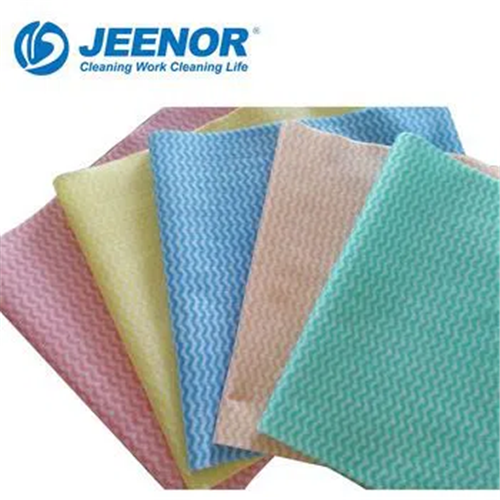
Strength and Weight
When it comes to purchasing polyester non-woven fabric, two key considerations are its strength and weight. These factors play a crucial role in determining the fabric's durability and suitability for various applications. Let's dive into each aspect in detail.
Polyester Non-Woven Fabric Strength
The strength of polyester non-woven fabric is determined by the quality of its fibers and the production techniques employed. High-quality polyester fibers are more resistant to breakage and can withstand repeated use without fraying or tearing. Additionally, the bonding method used during production is important. Whether through heat, chemicals, or mechanical processes, a strong bond between the fibers ensures that the fabric retains its integrity over time.
When evaluating the strength of polyester non-woven fabric, consider the specific application it will be used for. If the fabric will be subjected to heavy-duty use or environments with high abrasion, a fabric with stronger fibers and a robust bonding method is recommended.
Lightweight Characteristics
One of the appealing characteristics of polyester non-woven fabric is its lightweight nature. This makes it ideal for applications where weight is a concern, such as in the automotive or aerospace industries. Despite being lightweight, polyester non-woven fabric still maintains its strength and durability.
The advantage of a lightweight fabric is that it allows for easier handling, transportation, and installation. It also offers flexibility in design, as it can be molded or shaped without adding excessive weight to the final product. This makes it a versatile choice for various industries.
When considering the weight of polyester non-woven fabric, it is important to select a weight that aligns with the specific application requirements. Thicker and heavier fabrics tend to offer better resistance against abrasion and impact, while lighter fabrics may be suitable for less demanding applications.
In conclusion, when purchasing polyester non-woven fabric, assessing the strength and weight is essential. Ensure that the fabric has robust fibers and a strong bonding method to meet the required durability. Additionally, consider the weight of the fabric to ensure it aligns with the intended application. By taking these factors into account, you can select a polyester non-woven fabric that meets your specific needs and provides reliable performance.

Moisture Absorption and Quick Drying
When it comes to purchasing polyester non-woven fabric, two key considerations are its moisture absorption capabilities and quick drying properties. These factors are crucial in determining the fabric's performance and suitability for various applications. Let's dive into each aspect in detail.
Polyester Non-Woven Fabric Moisture Absorption
Polyester non-woven fabric is known for its excellent moisture absorption properties. The fabric's structure is designed to allow moisture to be absorbed into the fibers, keeping the surface dry and comfortable. This is especially important in applications where moisture management is critical, such as in sportswear, outdoor equipment, and healthcare products.
The moisture absorption ability of polyester non-woven fabric helps to wick away sweat, keeping the wearer dry and cool. It also prevents the build-up of moisture, which can lead to bacterial growth and unpleasant odors. This makes it an ideal choice for active individuals who engage in rigorous physical activities.
Quick Drying Properties
In addition to its moisture absorption capabilities, polyester non-woven fabric is also known for its quick drying properties. The fabric is engineered to release moisture quickly, allowing it to dry rapidly. This is highly beneficial in situations where fast drying is essential, such as in outdoor gear, swimwear, and towels.
The quick drying properties of polyester non-woven fabric ensure that moisture is efficiently transported away from the body or surface, preventing the fabric from becoming heavy and uncomfortable. It also minimizes the risk of prolonged exposure to moisture, which can lead to skin irritation or discomfort.
Furthermore, the quick drying nature of polyester non-woven fabric makes it easy to maintain and care for. It can be washed and dried quickly, reducing the need for lengthy drying times or specialized cleaning procedures.
In conclusion, when purchasing polyester non-woven fabric, it is important to consider its moisture absorption and quick drying properties. The fabric's ability to absorb moisture and dry quickly ensures optimal comfort and performance in various applications. By selecting polyester non-woven fabric with these key characteristics, you can confidently create products that meet the demands of your customers and provide reliable moisture management
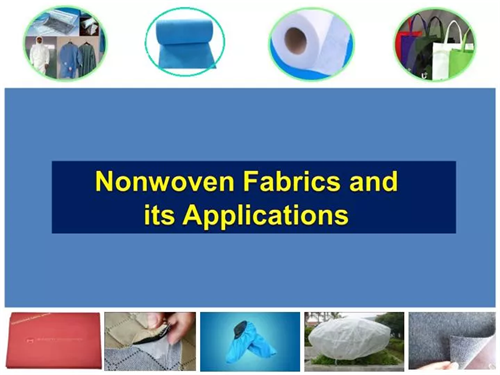
Chemical Resistance
When it comes to purchasing polyester non-woven fabric, one important consideration is its chemical resistance. Polyester non-woven fabric is known for its ability to withstand a wide range of chemicals, making it suitable for various applications where exposure to acids, alkalis, and solvents is possible.
Polyester Non-Woven Fabric Chemical Resistance
Polyester non-woven fabric exhibits excellent chemical resistance due to its inherent properties and manufacturing process. The fabric is composed of synthetic fibers that are resistant to many common chemicals, including acids, alkalis, and solvents. This makes it an ideal choice for industries such as manufacturing, automotive, and medical, where exposure to chemicals is common.
Protection Against Acids, Alkalis, and Solvents
Polyester non-woven fabric provides reliable protection against a wide range of acids, alkalis, and solvents. It is resistant to acidic substances such as sulfuric acid and hydrochloric acid, as well as alkaline substances like sodium hydroxide. Additionally, it can withstand exposure to various solvents, including acetone and ethanol.
The excellent chemical resistance of polyester non-woven fabric ensures that it retains its integrity and performance even when exposed to harsh chemicals. This is crucial in applications where protection against chemical spills or contact is essential, such as in protective clothing, filtration systems, and chemical storage bags.
Moreover, the chemical resistance of polyester non-woven fabric contributes to its durability and longevity. It helps prevent the fabric from degrading or deteriorating over time, ensuring that it maintains its protective properties for an extended period.
In conclusion, when purchasing polyester non-woven fabric, it is crucial to consider its chemical resistance. Polyester non-woven fabric offers excellent protection against acids, alkalis, and solvents, making it a reliable choice for applications where exposure to these chemicals is likely. By selecting polyester non-woven fabric with strong chemical resistance, you can ensure the safety, performance, and durability of your products

Breathability and Ventilation
When considering the purchase of polyester non-woven fabric, one important factor to evaluate is its breathability and ventilation capabilities. Polyester non-woven fabric is known for its ability to provide adequate air flow, making it suitable for a variety of applications where ventilation is crucial.
Air Permeability of Polyester Non-Woven Fabric
Polyester non-woven fabric exhibits excellent air permeability due to its unique structure and manufacturing process. The fabric is composed of interconnected synthetic fibers that allow air to pass through easily. This enables proper air circulation and promotes breathability, making it ideal for applications where heat and moisture management are important.
Proper air permeability is essential in industries such as automotive, healthcare, and sports textiles, where comfort and moisture control are vital. By allowing air to flow through the fabric, polyester non-woven fabric helps to regulate body temperature, reduce sweat accumulation, and prevent discomfort caused by excessive heat and moisture buildup.
Promoting Breathability and Comfort
Polyester non-woven fabric not only provides good air permeability but also offers enhanced comfort for the wearer. The fabric's ability to promote breathability and ventilation ensures that it remains cool and dry, even during rigorous activities or in hot and humid environments.
Polyester non-woven fabric's lightweight nature further contributes to its comfort factor. It provides a soft and smooth feel against the skin, allowing for easy movement and minimizing any potential irritation or chafing.
In addition to its use in clothing and sportswear, the breathability and ventilation properties of polyester non-woven fabric make it suitable for applications like mattress pads, upholstery, and filtration systems. By incorporating this fabric, these products can enhance air flow and maintain a fresh and comfortable environment.
In conclusion, when purchasing polyester non-woven fabric, it is crucial to consider its breathability and ventilation capabilities. Polyester non-woven fabric's air permeability ensures proper air circulation, promoting breathability and comfort in various applications. By selecting polyester non-woven fabric with excellent breathability and ventilation, you can ensure optimal performance, comfort, and user satisfaction

Applications
Common Uses of Polyester Non-Woven Fabric
Polyester non-woven fabric finds a wide range of applications due to its unique properties and versatility. Here are some common uses of polyester non-woven fabric:
1.Filtration Systems: The excellent air permeability and breathability of polyester non-woven fabric make it an ideal choice for filtration systems. It effectively captures and filters particles, ensuring clean and purified air or water.
2.Automotive Industry: Polyester non-woven fabric is widely used in the automotive industry for various applications, including sound insulation, upholstery, and trunk linings. Its breathability and ventilation properties help in maintaining a comfortable environment inside the vehicle.
3.Healthcare Sector: In the healthcare sector, polyester non-woven fabric is used for medical gowns, surgical drapes, face masks, and other protective equipment. The fabric's ability to provide adequate air flow and breathability ensures comfort and prevents heat buildup.
4.Home Furnishings: Polyester non-woven fabric is extensively used in home applications such as mattress pads, upholstery, and curtains. Its breathability and ventilation capabilities contribute to a comfortable living environment.
Industrial and Home Applications
Apart from the common uses mentioned above, polyester non-woven fabric has several other industrial and home applications. Here are a few notable examples:
1. Crafts and DIY Projects: Polyester non-woven fabric is often used in crafts and DIY projects due to its durability and ease of handling. It can be easily cut and shaped, making it suitable for a wide range of creative endeavors.
2. Packaging: Polyester non-woven fabric is utilized in packaging applications such as gift bags, promotional totes, and protective covers. Its strength and resistance to tearing make it an excellent choice for ensuring the safety of packaged items.
3. Insulation: Polyester non-woven fabric can be used as insulation material in construction and home improvement projects. It offers thermal insulation properties and helps in maintaining energy efficiency.
4. Agriculture: In the agricultural sector, polyester non-woven fabric is used for crop protection, weed control, and erosion prevention. Its lightweight and breathable nature allows for proper air and water circulation, enhancing plant growth.
In conclusion, polyester non-woven fabric has a wide range of applications across various industries and home settings. Its breathability and ventilation qualities make it suitable for use in filtration systems, automotive industry, healthcare sector, home furnishings, crafts, packaging, insulation, and agriculture. When considering the purchase of polyester non-woven fabric, it is important to evaluate its suitability for the specific application to ensure optimal performance and user satisfaction.

Care and Maintenance
Cleaning and care instructions for Polyester Non-Woven Fabric
Polyester non-woven fabric is known for its durability and versatility, but proper care and maintenance are essential to prolong its lifespan and maintain its appearance. Here are some cleaning and care instructions to follow:
1. Regular Vacuuming: Use a handheld vacuum or a vacuum cleaner with a soft brush attachment to remove dust and debris from the surface of the fabric. Regular vacuuming prevents the accumulation of dirt and helps to maintain its cleanliness.
2. Spot Cleaning: In case of spills or stains, it is important to act quickly. Blot the area with a clean cloth or paper towel to absorb any liquid. Avoid rubbing the stain, as it may spread or set deeper into the fabric. Use a mild detergent and warm water to gently clean the affected area. Rinse with clean water and blot dry. Test any cleaning solution on a small, inconspicuous area before applying it to the stain.
3. Avoid Harsh Chemicals: Polyester non-woven fabric is sensitive to harsh chemicals, so it is important to avoid using bleach, strong detergents, or stain removers that contain bleach or bleach alternatives. These chemicals can cause discoloration or damage to the fabric.
4. Avoid Heat and Direct Sunlight: Polyester non-woven fabric is heat-sensitive, so it is important to keep it away from direct sunlight or other sources of heat. Prolonged exposure to heat can cause the fabric to shrink or lose its shape.
Preventing Stains and Odors
To prevent stains and odors on your polyester non-woven fabric, consider the following preventive measures:
1. Apply Fabric Protection: Treat the fabric with a fabric protection spray or solution to create a barrier against stains and spills. Follow the instructions provided with the product for best results.
2. Use Slipcovers and Throws: Consider using slipcovers or throws on furniture upholstered with polyester non-woven fabric. These can provide an additional layer of protection and can be easily removed and cleaned when necessary.
3. Avoid Eating or Drinking near the Fabric: To prevent accidental spills and stains, it is advisable to avoid eating or drinking near the fabric. If necessary, use a tray or placemat to catch any spills.
4. Regular Air Circulation: Proper air circulation is important to prevent the accumulation of odors. Ensure that the fabric is not enclosed in a tightly sealed space, and periodically open windows or use fans to allow for fresh air circulation.
By following these care and maintenance instructions, you can ensure that your polyester non-woven fabric remains clean, fresh, and in good condition for years to come
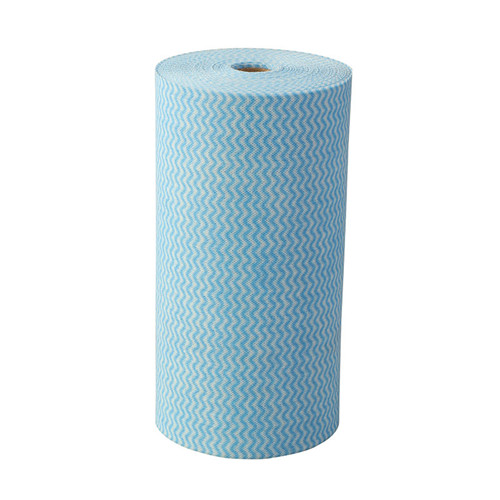
Conclusion
In conclusion, branding is essential for any business looking to differentiate itself from competitors and stay relevant in the market. It goes beyond creating a logo and slogan; it involves developing a unique identity that resonates with your target audience and showcases your business's distinctiveness. By leveraging branding, you can create a point of difference and showcase your values, story, brand promise, and other assets.
Moving on to care and maintenance of polyester non-woven fabric, it is crucial to follow proper cleaning and care instructions to prolong its lifespan and maintain its appearance. Regular vacuuming helps to prevent the accumulation of dirt, while spot cleaning with mild detergent and warm water is recommended for spills or stains. It is important to avoid harsh chemicals, bleach, and direct sunlight, as they can cause discoloration or damage to the fabric. To prevent stains and odors, consider applying fabric protection, using slipcovers or throws, avoiding eating or drinking near the fabric, and ensuring proper air circulation.
When purchasing polyester non-woven fabric, there are key considerations to keep in mind. Firstly, determine the intended use of the fabric to choose the right weight and thickness. Consider the fabric's durability and whether it meets your specific requirements, such as flame resistance or water repellency. It is also essential to check for certifications or standards that indicate the fabric's quality and safety. Additionally, consider the color options available and whether they align with your design aesthetics. Finally, compare prices from different suppliers and evaluate the overall value for money.
By considering these key factors, you can make an informed decision when purchasing polyester non-woven fabric that best suits your needs. Remember to prioritize quality, durability, and suitability for your intended use. With proper care and maintenance, your polyester non-woven fabric will remain clean, fresh, and in good condition for years to come.




